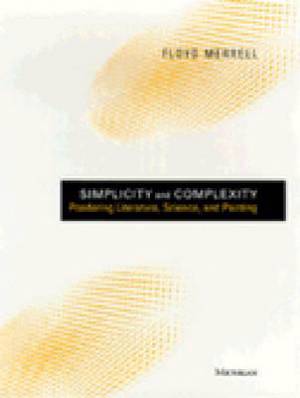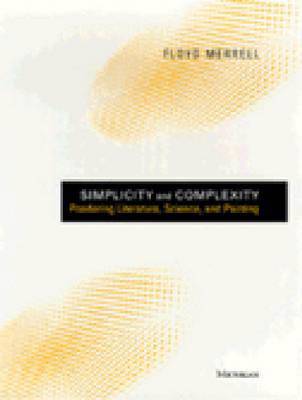
- Afhalen na 1 uur in een winkel met voorraad
- Gratis thuislevering in België vanaf € 30
- Ruim aanbod met 7 miljoen producten
- Afhalen na 1 uur in een winkel met voorraad
- Gratis thuislevering in België vanaf € 30
- Ruim aanbod met 7 miljoen producten
Zoeken
€ 144,45
+ 288 punten
Omschrijving
Behind every apparently placid surface there lies an unruly ocean of complexity. Fractals, chaos theory, and dissipative structures bear witness to these hidden complexities of the universe. Complementing these ideas in the sciences, fiction from the likes of Jorge Luis Borges, Italo Calvino, Thomas Pynchon, and Samuel Beckett reveals our deep-seated desire for simplicity while we are obliged to learn to cope with complexity. And painting, especially since Paul Cézanne, exposes the complexity pervading what we often wish to take simply as what there is. Simplicity and Complexity is about simplicity and complexity, order and disorder, as seen through the lenses of fiction, the sciences, and works of art. Floyd Merrell offers a nonmathematical account of chaos theory, fractal geometry, and the physics of complexity insofar as they are relevant to crucial facets of literature and painting created over the past century. Though his account is informal, he addresses technical concepts and philosophical questions, and sheds new light on the authors and painters he discusses. His radically interdisciplinary approach is within the mainstream of postmodern practices, yet it criticizes the tendency toward facile conclusions and sweeping generalizations regarding relations between the arts, the humanities, and the sciences. It brings a collection of disciplines under an umbrella that is protective of particular theories, concepts, methods, and practices, while revealing connecting threads in the tenuously linked web of all human endeavors to know the product of the mind and of the world. "Merrell gives inter-disciplinarity a new horizon and continues the dialogue between the sciences and literature in a way I have not seen since Hegel tried to pull it all together in his Encyclopedia." --Eugen Baer, Professor of Philosophy, Hobart and William Smith Colleges
Specificaties
Betrokkenen
- Auteur(s):
- Uitgeverij:
Inhoud
- Aantal bladzijden:
- 384
- Taal:
- Engels
- Reeks:
Eigenschappen
- Productcode (EAN):
- 9780472108602
- Verschijningsdatum:
- 4/03/1998
- Uitvoering:
- Hardcover
- Formaat:
- Genaaid
- Afmetingen:
- 161 mm x 237 mm
- Gewicht:
- 716 g

Alleen bij Standaard Boekhandel
+ 288 punten op je klantenkaart van Standaard Boekhandel
Beoordelingen
We publiceren alleen reviews die voldoen aan de voorwaarden voor reviews. Bekijk onze voorwaarden voor reviews.








